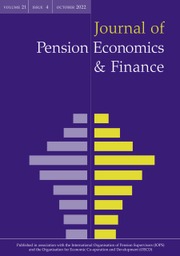Privatising provision and attacking poverty? The direction of UK Pension Policy under new Labour
Published online by Cambridge University Press: 01 April 2003
Abstract
This paper analyses the thrust of the UK Government's pension reforms in the context of the system they inherited. The reforms represent continuity with what went before in seeking to continue the privatisation of pension provision, but herald a new emphasis on pensioner poverty reduction. There is a clear broad strategy even though not all of the reforms fit obviously within it – a generous means-tested system, extensive private provision and a diminished contributory pension. In the long term, this strategy has advantages in terms of containing public sector liabilities, but involves further downgrading the contributory principle. It will also affect the incentive to save for many individuals. Individuals currently on means-tested benefits will be able to keep more of their savings as a result of the reform. But those currently outside the means-tested benefit regime who expect to be brought into it as a result of the reforms will face a diminished incentive to save.
- Type
- Research Article
- Information
- Copyright
- © 2003 Cambridge University Press
Footnotes
- 5
- Cited by




